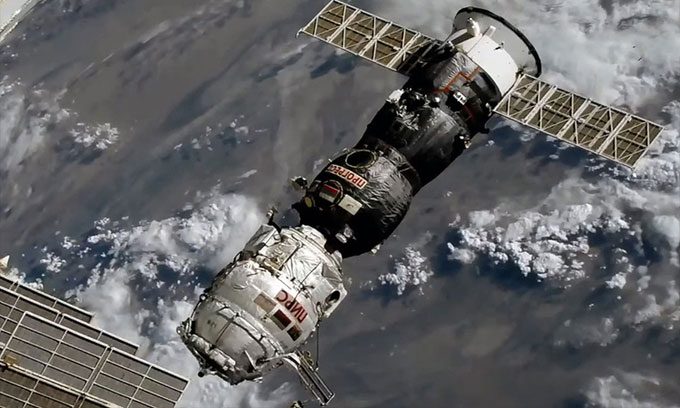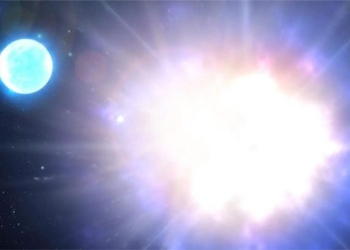The Pirs module of the International Space Station (ISS) has detached and is descending into the atmosphere for a controlled deorbit, making way for a new 20-ton module.
The Progress MS-16/77P cargo spacecraft from Russia, carrying the Pirs module, detached from the International Space Station (ISS) at 5:55 PM on July 26 (Hanoi time) to clear space for a new module named Nauka. At 9:01 PM, after moving a safe distance away from the ISS, Progress MS-16/77P began its engine burn. The spacecraft, along with the Pirs module, plunged into the atmosphere and ignited. Any remaining debris was calculated to fall into the southern Pacific Ocean to avoid damage.

Pirs module attached to the Progress MS-16/77P spacecraft detaching from the ISS, preparing for re-entry on July 26. (Photo: NASA TV).
Initially, Progress MS-16/77P and Pirs were scheduled to detach from the ISS on July 23, two days before the planned launch of the Nauka module. However, issues with Nauka’s propulsion and orientation systems forced experts to delay the schedule. Eventually, after several days of troubleshooting, the propulsion system of the module was restored, and two tests of the orientation system were successfully conducted.
Pirs was launched into space on September 14, 2001. This module served as a docking port for crewed Soyuz spacecraft and Progress cargo ships for nearly 20 years, and it also functioned as an airlock (a chamber between two areas with different air pressure, allowing humans to move from one side to the other) for Russian spacewalks.
Nauka weighs approximately 20 tons, significantly larger than Pirs. In addition to serving as a docking port and airlock, this module features expanded living space for astronauts, a research lab, a restroom, an oxygen generator, solar panels, and a robotic arm built by the European Space Agency (ESA). Nauka’s propulsion systems will also help control its orientation, keeping the ISS on the correct trajectory.
NASA experts are planning to adjust the robotic arm on the Zarya module of Russia to conduct a 7-hour inspection of the docking port on the Zvezda module. This port faces Earth and is currently vacant following Pirs’ departure. Engineers want to ensure there are no debris or other issues that could obstruct Nauka’s docking.
Nauka is expected to begin docking with the Zvezda port at 8:24 PM on July 29. Russia will need to conduct 11 spacewalks over approximately 7 months to connect power and equip the new module.





















































